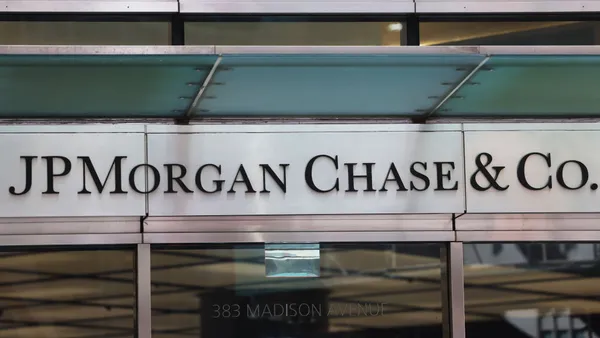Washington, D.C., Attorney General Brian Schwalb sued EarnIn on Tuesday, claiming the fintech “deceptively market[s]” its “cash out” product as earned wage access when it’s really a loan – at times carrying a more than 300% interest rate.
“EarnIn lures in hard-working, cash-strapped workers with the false promise of free instant cash advances, and then charges them unlawfully high interest,” Schwalb said in a statement. “This predatory business model is illegal. Especially at a time when the cost of living is already too high, my office will always have Washingtonians’ backs.”
At issue is EarnIn’s “Lightning Speed” feature, which allows users to immediately access their earned wages – but at $3.99 or $5.99 per transaction, a fee the attorney general’s office said is poorly disclosed.
“The existence of these fees is buried in the fine print, and EarnIn does not inform users about the amount of the fees until after they sign up, provide a substantial amount of personal and financial information, and attempt to get the promised instant cash,” the AG’s office wrote in its release Tuesday.
Roughly 90% of EarnIn’s D.C. users have paid “Lightning Speed” fees. But in addition to those charges, users are asked to leave a “tip,” with default amounts set between $1 and $14 per transaction, the AG’s office said.
That flies in the face of claims EarnIn makes in TV, radio and online ads, promising “no fees” and “no interest,” the AG’s office said.
The district’s lawsuit aims to permanently bar EarnIn from operating in D.C. and is seeking restitution, civil penalties and costs.
Karl Racine, who is of counsel to EarnIn but was Schwalb’s predecessor as D.C.’s AG, said the district’s lawsuit “demonstrates a fundamental misunderstanding of how our product works and why so many D.C. residents benefit from it.”
“EWA empowers individuals to make financial decisions that work for their unique situations," Racine said in a statement to American Banker. "Elected officials should empower workers to make choices that best meet the needs of their families."
However, Lauren Saunders, associate director of the National Consumer Law Center, credited Schwalb for “see[ing] through the veneer” of EarnIn’s terminology.
“A payday advance that is repaid on payday is a payday loan, and fintech cash advance apps like EarnIn that call themselves ‘earned wage access’ are just high-cost lending in disguise,” Saunders said Tuesday in a statement, highlighting the 300% interest figure. D.C. caps its interest rate at 24%.
Roughly 20,000 D.C. residents have used EarnIn for more than 1 million transactions since 2016, the AG’s office said. However, it’s operating in the district without the lending license it needs, the office argued.
But Phil Goldfeder, CEO of the American Fintech Council, said that license shouldn’t apply.
"Simply put, EWA is not a loan, and should not be regulated as such,” he said in a statement Tuesday. “It bears no hallmarks of a traditional lending product – it is a no-cost, non-recourse tool providing millions of Americans with safe, convenient access to wages they have already earned.”
EarnIn, though, is not affiliated with employers and does not have access to workers’ wages, the AG’s office argued.
Goldfeder, however, called companies like EarnIn “responsible innovators” because of the user base they tend to serve.
“It is these exact consumers – who are underbanked or have little to no credit history – that will be most harmed by efforts to reclassify EWA,” Goldfeder said. “AFC strongly objects to any legal, legislative, or regulatory action that seeks to erroneously classify EWA as a loan product and limit access to this safe, innovative financial product for the consumers who need it the most.”













